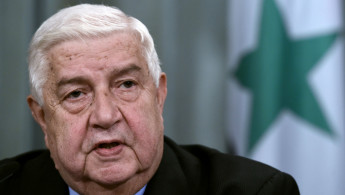"We do not accept a role for the United Nations or international forces to monitor the agreement," he told reporters in Damascus.
Russia, Iran and Turkey agreed a deal on Thursday to implement four 'de-escalation zones' in Syria, where regime forces and rebel fighters will cease hostilities.
According to the deal, the areas will be surrounded by "security zones" with checkpoints and observation centres "ensured by the forces of the guarantors by consensus". It also said that "third-party" monitors could be deployed.
Muallem said there could be a role "as the Russian guarantor has said, for military police," however it was not clear whether he was referring to Syrian or foreign units.
The multi-phase plan, signed in the Kazakh capital Astana, is one of the more ambitious efforts aimed at ending Syria's six-year conflict.
| Read more here: Explaining Syria's 'de-escalation' zones and why some are worried |
It provides for a ceasefire, rapid deliveries of humanitarian aid and the return of refugees after "de-escalation zones" are created across stretches of eight Syrian provinces.
Syrian opposition groups have criticised the deal, saying that it divides Syria into "useful" and "useless" areas and splits the nation along sectarian lines.
The High Negotiations Committee, an umbrella body representing Syrian opposition groups at international talks, said the deal "lacks the minimal elements of legitimacy" and also rejected any role for government ally Iran as a guarantor of the deal.





 Follow the Middle East's top stories in English at The New Arab on Google News
Follow the Middle East's top stories in English at The New Arab on Google News


